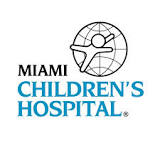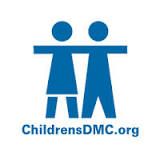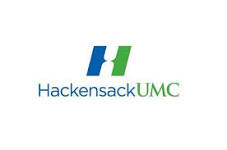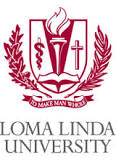MRD Testing Before and After Hematopoietic Cell Transplantation for Pediatric Acute Myeloid Leukemia
| Status: | Completed |
|---|---|
| Conditions: | Blood Cancer, Hematology |
| Therapuetic Areas: | Hematology, Oncology |
| Healthy: | No |
| Age Range: | Any - 21 |
| Updated: | 6/2/2017 |
| Start Date: | October 2011 |
| End Date: | May 2017 |
The Role of Minimal Residual Disease Testing Before and After Hematopoietic Cell Transplantation for Pediatric Acute Myeloid Leukemia
This is a non-therapeutic study. Pediatric AML patients undergoing HCT with a myeloablative
preparative regimen may be enrolled. Subjects can be enrolled 10-40 days prior to HCT. Three
samples for MRD (measured by WT1 PCR and flow cytometry) will be collected from peripheral
blood and bone marrow: 1) pre-HCT (<3 weeks prior to starting the preparative regimen), 2)
day 42 +/- 14 days post HCT (early post-engraftment), and 3) day 100 (+/-20 days) post HCT.
For two years after transplant, the subject's follow-up data will be collected using the
Research Level Forms in the CIBMTR Forms Net internet data entry system. The main objective
is to determine whether there is any association between level of pre-transplant and
post-transplant bone marrow MRD using WT1 and flow cytometry with 2-year
event-free-survival, and to estimate the strength of that association in terms of the
predictive accuracy of MRD. The investigators hypothesize that measurable MRD at either time
point will be associated with decreased 2-year event-free survival.
preparative regimen may be enrolled. Subjects can be enrolled 10-40 days prior to HCT. Three
samples for MRD (measured by WT1 PCR and flow cytometry) will be collected from peripheral
blood and bone marrow: 1) pre-HCT (<3 weeks prior to starting the preparative regimen), 2)
day 42 +/- 14 days post HCT (early post-engraftment), and 3) day 100 (+/-20 days) post HCT.
For two years after transplant, the subject's follow-up data will be collected using the
Research Level Forms in the CIBMTR Forms Net internet data entry system. The main objective
is to determine whether there is any association between level of pre-transplant and
post-transplant bone marrow MRD using WT1 and flow cytometry with 2-year
event-free-survival, and to estimate the strength of that association in terms of the
predictive accuracy of MRD. The investigators hypothesize that measurable MRD at either time
point will be associated with decreased 2-year event-free survival.
This is a prospective, non-therapeutic study, assessing the significance of minimal residual
disease (MRD) at three different time points in relation to allogeneic HCT for pediatric
AML. The study is a collaboration between the Pediatric Blood and Marrow Transplant
Consortium (PBMTC) and the Resource for Clinical Investigations in Blood and Marrow
Transplantation (RCI-BMT) of the Center for International Blood and Marrow Transplant
Research (CIBMTR). The study will enroll pediatric AML patients who undergo myeloablative
HCT at PBMTC sites. The eligibility criteria for this non-therapeutic study mirror widely
accepted criteria for allogeneic HCT in pediatric AML.
The study tests the hypothesis that assessment of pre-transplant and post-transplant MRD
predicts 2-year outcomes following transplant. Two MRD methodologies are being studied: flow
cytometry and WT1 PCR. The secondary hypothesis is that combining these 2 methodologies will
improve the accuracy in predicting 2-year outcomes following transplant.
It is well established that the level of minimal residual disease (MRD) during chemotherapy
is a strong predictor of relapse in children with acute lymphoblastic leukemia (ALL) [33,
34]. Within this population, MRD levels have the potential to predict those patients who
will respond well to standard therapy, thus allowing clinicians to tailor therapy and
minimize toxicity while ensuring maximal cure rates [10]. MRD levels before allogeneic
hematopoietic stem cell transplantation (HCT) also predict the risk of relapse post-HCT
[25], leading to the clinical practice of reducing MRD levels as much as possible before
transplant. By contrast, in children with acute myeloid leukemia (AML), the prognostic value
of MRD levels prior to HCT remains unclear.
Our long-term objective is to improve the cure rate for children with AML. The investigators
hypothesize that MRD levels before HCT will provide a powerful tool to select the best
candidates for transplant, guide decision making in stem cell source and preparative
therapy, and optimize the timing of the transplant. Measurements of MRD post-HCT will allow
informed decisions about withdrawal of immunosuppressive therapy, administration of donor
lymphocyte infusions, or alternative targeted therapies.
disease (MRD) at three different time points in relation to allogeneic HCT for pediatric
AML. The study is a collaboration between the Pediatric Blood and Marrow Transplant
Consortium (PBMTC) and the Resource for Clinical Investigations in Blood and Marrow
Transplantation (RCI-BMT) of the Center for International Blood and Marrow Transplant
Research (CIBMTR). The study will enroll pediatric AML patients who undergo myeloablative
HCT at PBMTC sites. The eligibility criteria for this non-therapeutic study mirror widely
accepted criteria for allogeneic HCT in pediatric AML.
The study tests the hypothesis that assessment of pre-transplant and post-transplant MRD
predicts 2-year outcomes following transplant. Two MRD methodologies are being studied: flow
cytometry and WT1 PCR. The secondary hypothesis is that combining these 2 methodologies will
improve the accuracy in predicting 2-year outcomes following transplant.
It is well established that the level of minimal residual disease (MRD) during chemotherapy
is a strong predictor of relapse in children with acute lymphoblastic leukemia (ALL) [33,
34]. Within this population, MRD levels have the potential to predict those patients who
will respond well to standard therapy, thus allowing clinicians to tailor therapy and
minimize toxicity while ensuring maximal cure rates [10]. MRD levels before allogeneic
hematopoietic stem cell transplantation (HCT) also predict the risk of relapse post-HCT
[25], leading to the clinical practice of reducing MRD levels as much as possible before
transplant. By contrast, in children with acute myeloid leukemia (AML), the prognostic value
of MRD levels prior to HCT remains unclear.
Our long-term objective is to improve the cure rate for children with AML. The investigators
hypothesize that MRD levels before HCT will provide a powerful tool to select the best
candidates for transplant, guide decision making in stem cell source and preparative
therapy, and optimize the timing of the transplant. Measurements of MRD post-HCT will allow
informed decisions about withdrawal of immunosuppressive therapy, administration of donor
lymphocyte infusions, or alternative targeted therapies.
Inclusion Criteria:
1. Subject or legal guardian to understand and voluntarily sign an informed consent.
2. Age 0-21 at time of transplant.
3. Karnofsky score ≥ 70% (age ≥ 16 years old), or Lansky score ≥ 70% (age<16 years old).
4. Patients with adequate physical function as measured by:
- Cardiac: Left ventricular ejection fraction at rest must be > 40%, or shortening
fraction > 26%
- Hepatic: Bilirubin ≤ 2.5 mg/dL; and ALT, AST and Alkaline Phosphatase≤ 5 x ULN
- Renal: Serum creatinine within normal range for age, or if serum creatinine
outside normal range for age, then renal function (creatinine clearance or GFR)
> 70 mL/min/1.73 m2.
- Pulmonary: DLCO, FEV1, FVC (diffusion capacity) > 50% of predicted (corrected
for hemoglobin); if unable to perform pulmonary function tests, then O2
saturation > 92% in room air.
5. Acute myelogenous leukemia (AML) at the following stages:
- High risk first complete remission (CR1), defined as:
- Having preceding myelodysplasia (MDS) -or-
- Diagnostic high risk karyotypes: del (5q) -5, -7, abn (3q), t (6;9),
abnormalities of 12, t (9:22), complex karyotype (≥3 abnormalities), the
presence of a high FLT3 ITD-AR (> 0.4) -or-
- Having >15% bone marrow blasts after 1st cycle and/or >5% after 2nd cycle
before achieving CR -and-
- <5% blasts in the bone marrow, with peripheral ANC>500
- Intermediate risk first complete remission (CR1), defined as:
- Diagnostic karyotypes that are neither high-risk (as defined above) nor low
risk (inv(16)/t(16:16); t(8;21); t(15;17)). Included are cases where
cytogenetics could not be performed. -and-
- <5% blasts in the bone marrow, with peripheral ANC>500
- High risk based upon COG AAML 1031 criteria:
- High allelic ratio FLT3/ITD+, monosomy 7, del(5q) with any MRD status or
standard risk cytogenetics with positive MRD at end of Induction I.
- <5% blasts in the bone marrow, with peripheral ANC>500
- Second or greater CR
- <5% blasts in the bone marrow, with peripheral ANC>500
- Therapy-related AML at any stage
- Prior malignancy in remission for >12 months.
- <5% blasts in the bone marrow, with peripheral ANC>500
6. Myeloablative preparative regimen, defined as a regimen including one of the
following as a backbone agent*:
- Busulfan ≥ 9mg/kg total dose (IV or PO). PK-based dosing is allowed, if intent
is myeloablative dosing OR
- Total Body Irradiation≥1200cGy fractionated OR
- Treosulfan ≥ 42g/m2 total dose IV *Regimens may include secondary agents such
as, but not limited to Ara-C, Fludarabine, VP-16. Regimens that combine Busulfan
and TBI or treosulfan and TBI are allowed as long as the Busulfan or treosulfan
meets or exceeds the dose listed and the TBI is below the dose listed.
7. Graft source:
- HLA-identical sibling PBSC, BM, or cord blood
- Adult related or unrelated donor PBSC or BM matched at the allelic level for
HLA-A, HLA-B, HLA-C, and HLA-DRB1 with no greater than a single antigen
mismatch.
- One or two unrelated cord blood units:
- HLA≥4:6 at the low resolution level for HLA-A, HLA-B, at high resolution
level at HLA-DRB1 for one or both units.
- If one unit, must have TNC≥2.5x107/kg; if two units, combination of the two
must have TNC≥2.5x107/kg
Exclusion Criteria:
1. Women who are pregnant (positive HCG) or breastfeeding.
2. Evidence of HIV infection or HIV positive serology.
3. Positive viral load (PCR) for Hepatitis B or C (negative serology, surface antigen,
and core antibody may substitute for PCR).
4. Current uncontrolled bacterial, viral or fungal infection (currently taking
medication and progression of clinical symptoms).
5. Autologous transplant < 12 months prior to enrollment.
6. Prior allogeneic hematopoietic stem cell transplant.
We found this trial at
35
sites
University of Mississippi Medical Center The University of Mississippi Medical Center, located in Jackson, is...
Click here to add this to my saved trials
Roswell Park Cancer Institute Welcome to Roswell Park Cancer Institute (RPCI), America's first cancer center...
Click here to add this to my saved trials
University of North Carolina at Chapel Hill Carolina’s vibrant people and programs attest to the...
Click here to add this to my saved trials
Cleveland Clinic Cleveland Clinic is committed to principles as presented in the United Nations Global...
Click here to add this to my saved trials
Miami Children's Hospital Welcome to Miami Children
Click here to add this to my saved trials
New York Medical College The College was founded in 1860 by a group of New...
Click here to add this to my saved trials
University of Michigan The University of Michigan was founded in 1817 as one of the...
Click here to add this to my saved trials
Children's Healthcare of Atlanta Whether treating a toddler in an emergency or supporting a teen...
Click here to add this to my saved trials
Children's Hospital Colorado At Children's Hospital Colorado, we see more, treat more and heal more...
Click here to add this to my saved trials
Johns Hopkins The Johns Hopkins University opened in 1876, with the inauguration of its first...
Click here to add this to my saved trials
Click here to add this to my saved trials
Dana-Farber Cancer Institute Since it’s founding in 1947, Dana-Farber has been committed to providing adults...
Click here to add this to my saved trials
Click here to add this to my saved trials
171 Ashley Avenue
Charleston, South Carolina 29425
Charleston, South Carolina 29425
843-792-1414

Medical University of South Carolina The Medical University of South Carolina (MUSC) has grown from...
Click here to add this to my saved trials
Click here to add this to my saved trials
Click here to add this to my saved trials
Children's Hospital of Michigan Since 1886, the Children's Hospital of Michigan has been dedicated to...
Click here to add this to my saved trials
Duke Univ Med Ctr As a world-class academic and health care system, Duke Medicine strives...
Click here to add this to my saved trials
Hackensack University Medical Center Hackensack University Medical Center, part of the Hackensack University Health Network,...
Click here to add this to my saved trials
500 University Dr
Hershey, Pennsylvania 17033
Hershey, Pennsylvania 17033
(717) 531-6955

Penn State Milton S. Hershey Medical Center Penn State Milton S. Hershey Medical Center, Penn...
Click here to add this to my saved trials
Click here to add this to my saved trials
Loma Linda University Loma Linda University (LLU) is a Seventh-day Adventist educational health-sciences institution with...
Click here to add this to my saved trials
University of Louisville The University of Louisville is a state supported research university located in...
Click here to add this to my saved trials
9000 W Wisconsin Ave #270
Milwaukee, Wisconsin 53226
Milwaukee, Wisconsin 53226
(414) 266-2000
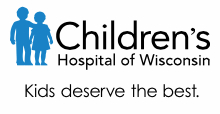
Children's Hospital of Wisconsin Nothing matters more than our children. At Children's Hospital of Wisconsin,...
Click here to add this to my saved trials
Click here to add this to my saved trials
Click here to add this to my saved trials
Phoenix Children's Hospital Phoenix Children's Hospital has provided hope, healing, and the best healthcare for...
Click here to add this to my saved trials
Click here to add this to my saved trials
Virginia Commonwealth University Since our founding as a medical school in 1838, Virginia Commonwealth University...
Click here to add this to my saved trials
Click here to add this to my saved trials
Click here to add this to my saved trials
Click here to add this to my saved trials
San Antonio, Texas 78229
Click here to add this to my saved trials
Click here to add this to my saved trials
Click here to add this to my saved trials




